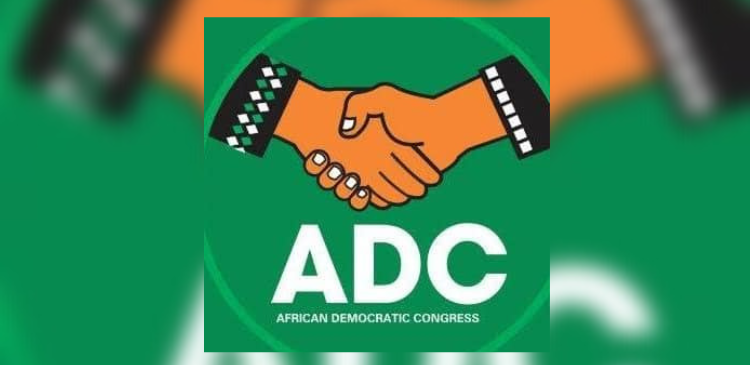The GENIUS Act Has Passed. Two Retailers Are Considering Stablecoins - Business Insider
The landmark crypto bill that just passed in Congress paves the way for more businesses to issue their own stablecoins.
This corner of the crypto market has received a lot of attention as the GENIUS Act moved toward becoming law, with crypto proponents cheering the huge show of legislative support.
These digital assets are a type of cryptocurrency pegged to fiat money like the US dollar. Right now, they're mostly used by crypto traders to easily buy other tokens.
However, stablecoins used for payments would be a monumental shift in the foundations of commerce.
In June, The Wall Street Journal reported that Walmart and Amazon were considering launching their own stablecoins. Now that the GENIUS Act has cleared the final legislative hurdle, crypto experts expect big changes to the payments ecosystem.
Here's what to know.
It isn't hard to see the incentive for big companies like Walmart or Amazon.
Businesses could save significant amounts in credit card processing fees, cutting out an expensive intermediary by having people use their proprietary crypto as payment.
"Retailers currently lose an estimated 2% to 3% of every transaction to credit card processing fees," CoinRoutes co-founder
Dave Weisberger, said.
"For companies with billions in sales, eliminating even a portion of that margin drag could unlock 10s of millions in savings. Stablecoins offer a potential alternative that reduces frictional costs, accelerates settlement times, and gives merchants more control over payment rails."
Eliminating that type of cost would be a boon for Walmart and Amazon, but would be a blow to credit card issuers like Visa and Mastercard.
"If a fraction of their customer base starts using a store-issued stablecoin instead of a Visa-backed card, that's billions in interchange fees gone overnight," Will Reeves, CEO of bitcoin rewards app Fold, told Business Insider.
Visa recently issued a statement on the passing of the GENIUS Act, noting that it anticipated the market shift brought on by stablecoin adoption. It stated that it is "laying the groundwork by building and supporting blockchain-based solutions that help our partners and clients integrate stablecoins into the future of mainstream payments."
For people shopping with a retailer like Amazon or Walmart, a stablecoin payment system might not feel all that different from what they're doing now.
According to Kevin Lehtiniitty, CEO of stablecoin network Borderless.xyz, a stablecoin issued by a big retailer would feel similar to using a gift card.
Reeves shared a similar perspective.
"On the surface, not much changes - you tap your phone, check out, maybe earn extra rewards or save on fees. But underneath, everything shifts. Walmart and Amazon aren't just retailers anymore—they're now your bank and your payment network."
The benefit for shoppers could ultimately be lower prices if companies pass what they save in transaction fees to their customers.
"Competition at this scale drives down transaction costs, and that means consumers will likely see lower prices, better rewards, or both," Reeves added.
Dan Silverman, CEO of Balcony Technology Group, noted that the rise of corporate stablecoins could also prove beneficial to unbanked people, as it would allow them to access digital currency through their phones.
"The big thing I could also imagine is for loyalty points or rewards to be baked into the token itself," he stated. "Think about when you get that long printed out receipt that has savings on it that you end up throwing out and never taking advantage of. The savings could be issued automatically on-chain."
In order for either company's stablecoin initiative to succeed, its customers would have to trust them.
A potential downside for consumers is that stablecoins could add another layer to a process that's become pretty simple over the years. Shoppers would have to buy the stablecoins first and then use them to transact. For many people, it could be simpler to just keep using credit or debit cards already on file.
Another risk for consumers is the management of stablecoin reserves. To hold their value, the tokens must be backed by an equivalent amount of liquid reserves, such as cash or short-term Treasurys. If these reserves are mismanaged or the issuing entity runs into financial trouble, the stablecoins could untether from their fiat peg and lose their value.
You may also like...
Diddy's Legal Troubles & Racketeering Trial

Music mogul Sean 'Diddy' Combs was acquitted of sex trafficking and racketeering charges but convicted on transportation...
Thomas Partey Faces Rape & Sexual Assault Charges

Former Arsenal midfielder Thomas Partey has been formally charged with multiple counts of rape and sexual assault by UK ...
Nigeria Universities Changes Admission Policies

JAMB has clarified its admission policies, rectifying a student's status, reiterating the necessity of its Central Admis...
Ghana's Economic Reforms & Gold Sector Initiatives

Ghana is undertaking a comprehensive economic overhaul with President John Dramani Mahama's 24-Hour Economy and Accelera...
WAFCON 2024 African Women's Football Tournament

The 2024 Women's Africa Cup of Nations opened with thrilling matches, seeing Nigeria's Super Falcons secure a dominant 3...
Emergence & Dynamics of Nigeria's ADC Coalition

A new opposition coalition, led by the African Democratic Congress (ADC), is emerging to challenge President Bola Ahmed ...
Demise of Olubadan of Ibadanland
Oba Owolabi Olakulehin, the 43rd Olubadan of Ibadanland, has died at 90, concluding a life of distinguished service in t...
Death of Nigerian Goalkeeping Legend Peter Rufai

Nigerian football mourns the death of legendary Super Eagles goalkeeper Peter Rufai, who passed away at 61. Known as 'Do...





